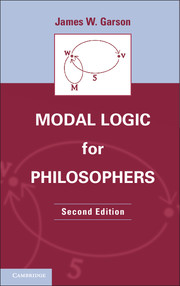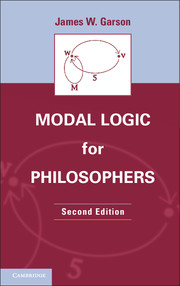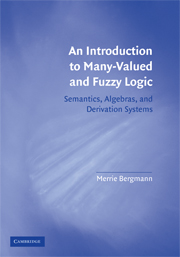Modal Logic for Philosophers
Designed for use by philosophy students, this 2006 book provides an accessible, yet technically sound treatment of modal logic and its philosophical applications. Every effort has been made to simplify the presentation by using diagrams in place of more complex mathematical apparatus. These and other innovations provide philosophers with easy access to a rich variety of topics in modal logic, including a full coverage of quantified modal logic, non-rigid designators, definite descriptions, and the de-re de-dictio distinction. Discussion of philosophical issues concerning the development of modal logic is woven into the text. The book uses natural deduction systems and also includes a diagram technique that extends the method of truth trees to modal logic. This feature provides a foundation for a novel method for showing completeness, one that is easy to extend to systems that include quantifiers.
- Extensive use of diagrams to simplify the presentation of technical material: natural deduction rules also help make material accessible
- Accessible and useful for philosophers
- New methods for proving technical results are presented which simplify the proofs, especially when quantifiers are introduced
Reviews & endorsements
'This book is a very well written introduction into propositional and first-order logic. … This book is a very valuable enlargement of the textbook literature, particularly for the field of first order modal logic's. And it is not only suitable for philosophers; also mathematicians and computer scientists may use it with benefit. it correctly defines all notions, makes clear claims and proves them in detail.' Zentralblatt MATH
Product details
April 2011Adobe eBook Reader
9780511280122
0 pages
0kg
This ISBN is for an eBook version which is distributed on our behalf by a third party.
Table of Contents
- Introduction
- 1. The system K
- 2. Extensions of K
- 3. Intensional semantics
- 4. Trees for K
- 5. The accessibility relation
- 6. Trees for extensions of K
- 7. Converting trees to proofs
- 8. Adequacy of propositional modal logics
- 9. Completeness using canonical models
- 10. The general axiom
- 11. Relations between the modal logics
- 12. Systems for quantified modal logic
- 13. Semantics for quantified modal logics
- 14. Trees for quantified modal logic
- 15. The adequacy of quantified modal logics
- 16. Completeness of quantified modal logics using trees
- 17. Completeness using canonical models
- 18. Descriptions
- 19. Lambda abstraction.





